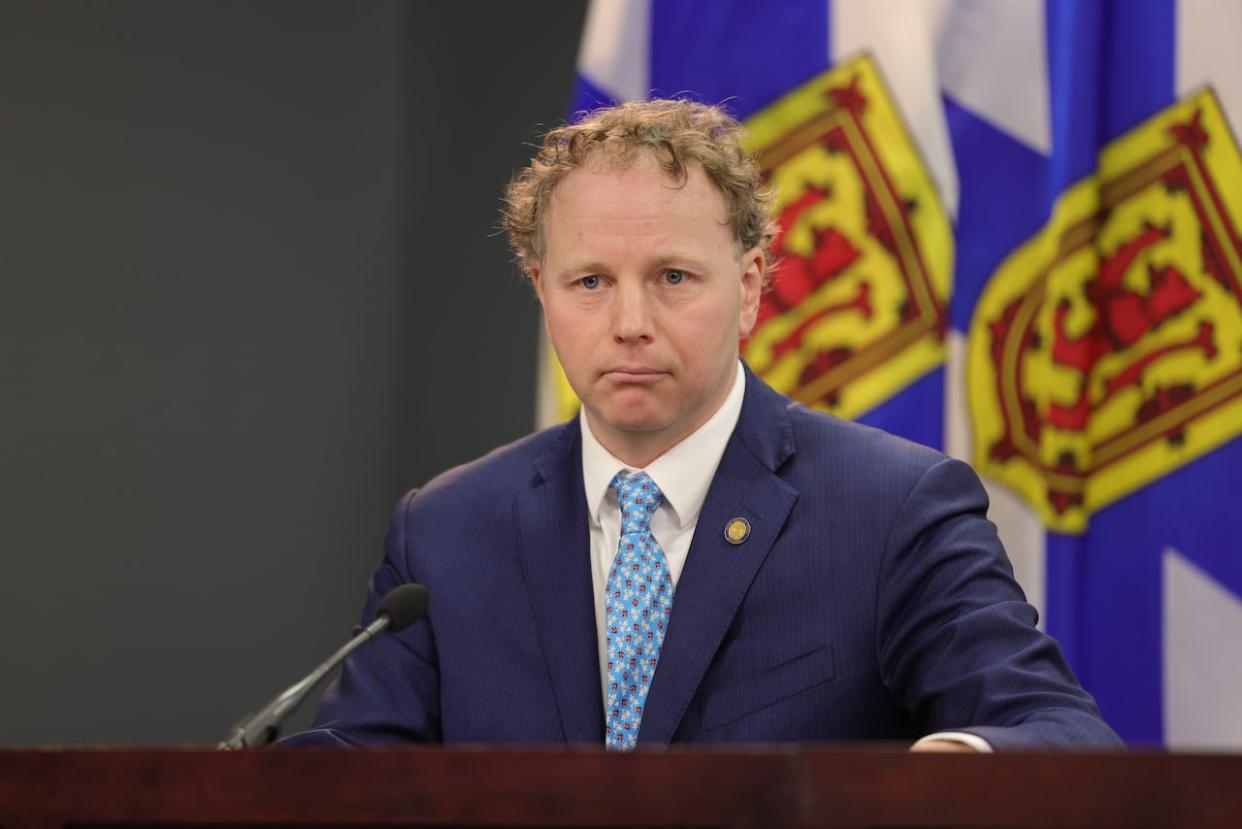Finance minister says public should see options for teachers' pension fund liability — but not yet

Finance Minister Allan MacMaster says the public deserves to know how the unfunded liability of the Nova Scotia Teachers' Pension Plan will be addressed, but only after the plan's two sponsors have finished considering recommendations from an independent report.
"No immediate decision needs to be made," MacMaster told reporters following a cabinet meeting Thursday.
"The plan is stable. People are getting their pension cheques, people are making their contributions to the plan."
The plan's annual report was released earlier this week.
It shows the funded status increased from the previous year, reaching 78.1 per cent. The fund has about $5.8 billion in assets available for benefits against almost $7.4 billion in liabilities, for an unfunded liability of approximately $1.6 billion.
Plan not at risk of missing obligations
Two years ago, an independent expert panel produced a report with non-binding recommendations for how to fully fund the plan. So far, however, the information has not been made public.
The plan's trustee chair, John Rogers, wrote in the fund's annual report that the board "continues to be hopeful" the report "will catalyze meaningful steps by the province and [Nova Scotia Teachers Union] to effect changes that will improve the plan's long-term financial sustainability."
Rogers noted the plan is not at risk of being unable to meet its pension obligations over the short term.
There are implications for that unfunded liability, however.
Indexing still on hold for some members
Retired teachers who started drawing a pension after Aug. 1, 2006, have not received indexing. That will only change if the plan reaches at least 90 per cent funded status.
Indexing equivalent to half of the consumer price index could be available at the discretion of the board of trustees when the plan is funded between 90 and 100 per cent.
Indexing would be provided equal to the index when the pension is funded beyond 100 per cent.
In the meantime, the province is making special payments on top of annual contributions. In 2023, that was worth $87 million.
MacMaster dismissed a suggestion that those annual special payments are costing the public more than if a bailout were to happen now.
"I don't think that would be fair to say," he said. "There's too many variables at play to make such a simple statement."
'An ongoing and unfair burden on active members'
The annual report shows that 565 new members joined the plan in 2023, although the 13,867 active members continue to make up the minority of the plan's 34,799 total members. The report notes "the plan's continuing maturity remains a significant concern" because it experiences a net outflow of about $150 million to $200 million each year.
"This places an ongoing and unfair burden on active members paying high contribution rates," said the report.
Regardless of the course of action for dealing with the unfunded liability, MacMaster noted the public will be on the hook for half of the cost. He said it's important for the sponsors to take the time they need to get things right, and at that point details can be shared.
"I fully expect the public to be interested in this and they deserve to know where this is going, but right now there is no immediate need to make a decision," he said.
Liberal Leader Zach Churchill and NDP Leader Claudia Chender said the public has a right to know the options being considered, given the financial implications.
MORE TOP STORIES


